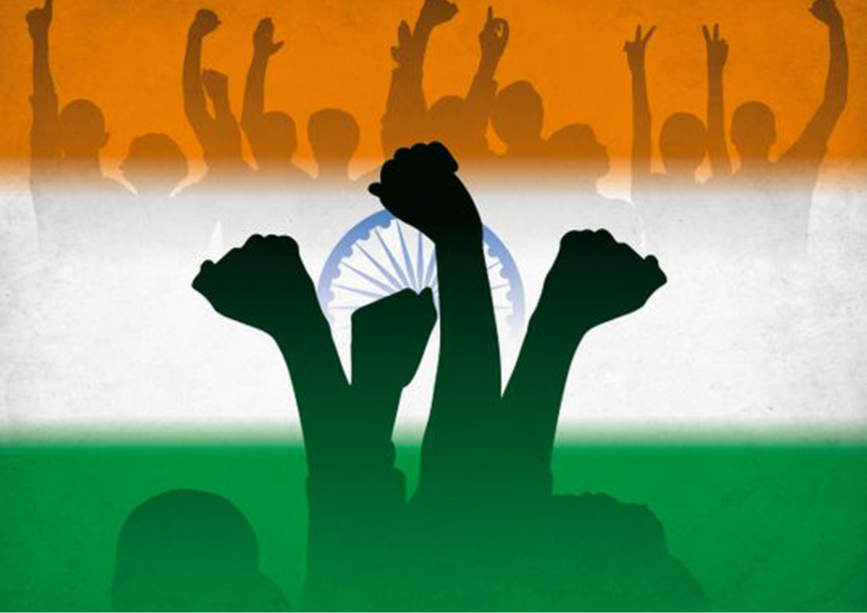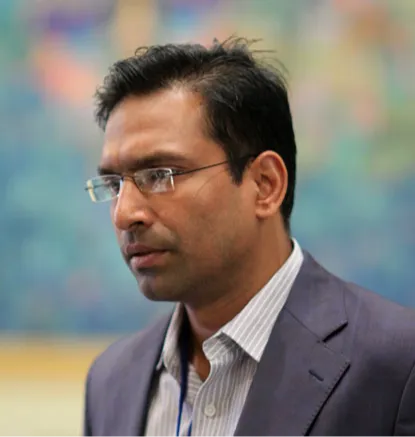
According to International IDEA’s latest The Global State of Democracy 2023 report, there has been “democratic recession” across the world in the last 6 years. The report, using key democracy and freedom indicators, stated that as many as 85 (out of 173) countries have “suffered a decline in at least one key indicator of democratic performance in the past five years”. In other words, nearly half of the world’s democracies have experienced a decline in some manner or other. What is troubling is that many established democracies are experiencing setbacks, ranging from a decline in social group equality in the United States (US), a decline in freedom of the press in Austria, and limited access to justice in the United Kingdom (UK). Yet, everything is not lost. The report noted the steady growth of deliberative democracy in the form of high political participation, active citizen movements demanding accountability, and the heightened role of investigative journalists, democracy defenders, and protectors of the rule of law.
Why does deliberation matter in democracy?
While there are numerous efforts in place to arrest the democratic erosion, one key aspect that is getting increasing global attention among scholars and democracy practitioners is the deliberative aspect of democracy. In their measured opinion, voting is not the best or at least not the only political mechanism for ensuring accountability in the democratic system. What happens in between the elections and how citizens get involved with the state and its representatives in decision-making directly impacts the quality of democracy. To them, the political mechanism of deliberation is key to the health of democratic institutions. Thus, deliberative democracy is critical to revive participatory politics and counter the “democratic deficit”.
The growing citizen dissatisfaction with democratic institutions, which is evident in the rising number of popular protests, lower voter participation and the repeated failure of public institutions to meet citizens’ demands and needs, are clearly challenging the legitimacy of democratic societies.
Further, democracy scholars argue that recent spurt of ethnic nationalism, populism, religious fundamentalisms, civil wars, etc. are the direct product of the democratic deficit in contemporary societies. The growing citizen dissatisfaction with democratic institutions, which is evident in the rising number of popular protests, lower voter participation and the repeated failure of public institutions to meet citizens’ demands and needs, are clearly challenging the legitimacy of democratic societies. In this context, Jürgen Habermas, a key proponent of deliberative democracy, argues that it is not enough to have the institutions of liberal democracy in the form of elections, parliaments, and rule of law, amongst others. The need of the hour is to ensure the quality and inclusiveness of the democratic process in the multiple spheres of social life and within all public institutions. For him, the ascendancy of parochial ethnic nationalism, religious fundamentalism, and popular protests are largely the product of “political neglect and exclusion by regimes purporting to be democratic”. Taking Habermas’s arguments further, Ian O’Flynn, another expert in the field, reiterates that deliberative democracy is the need of the hour to arrest rising levels of political disenchantment among common people and the resulting deterioration of civic life.
To sum up, the votaries of deliberative democracy argue that it is not enough to have the outward trimmings and institutions of liberal democracy; the quality and inclusiveness of the democratic process in the multiple spheres of society and within all public institutions should also be ensured. Ultimately the quality of democracy will improve through real-world forum—through debates, discussions, deliberations among citizens, and self-governing of the collective life of the people.
A number of states in the US have launched deliberative bodies such as the Citizens’ Initiative Reviews (Oregon) to institutionalise citizens’ role in the democratic decision-making processes.
Recognising its dire relevance, a host of international organisations and many established democracies have launched a wide variety of deliberative democracy initiatives. A prime example is the Organisation for Economic Cooperation and Development (OECD), which has come up with eight ways to promote and institutionalise deliberative democracy among member countries. This also has strong resonance among the wider European region, where there is a growing chorus about strengthening citizens’ assemblies, citizens’ monitoring committees, and direct democracy forums, among others. Similarly, a number of states in the US have launched deliberative bodies such as the Citizens’ Initiative Reviews (Oregon) to institutionalise citizens’ role in the democratic decision-making processes. Lately, one has seen instances of deliberative democracy initiatives getting popularised in parts of Asia and Africa including some of the newest converts to democracy.
Ascent of deliberative democracy in India
India, the world’s largest democracy, which is often cited as a huge success story in terms of establishing procedural democracy (where elections are regularly held in a free and free manner with increased participation from poor and marginalised groups, peaceful transfer of power, etc.), has had a less inspiring track with regard to deliberative democracy. Although the country has long traditions of deliberative democracy stretching back to the 5th century BC, it was only after the country enacted the twin constitutional amendments (73rd and 74th) in 1992 that one can see an institutionalised attempt to promote deliberative democracy in India. Until then, there were hardly any deliberative forums where citizens could interface with their elected representatives and officials on issues affecting their well-being.
One of the key innovations (particularly borne out of the 73rd Amendment Act) is the introduction of the Gram Sabha. Gram Sabha is a legislative body for the village council, which is India’s bold and imaginative attempt to create a deliberative democracy and participatory governance at the grassroots. Marking a break from the earlier top-down system of governance, the new three-tier system of decentralisation, which codified and vested the Gram Sabha with power to discuss and approve village plans and programs for social and economic development, has institutionalised citizens’ role in decision-making processes. Notably, the 73rd Amendment has mandated that the Gram Sabha will have every adult person of the village be a member, with meetings to be held at least two times a year. Significantly, the 73rd Amendment required that at least 33 percent of seats in village councils would be reserved for women, and a number proportionate to their population in the village reserved for disadvantaged castes. In short, by design, Gram Sabha is intended to be the base unit for India’s renewed attempt to deepen democratic governance in vast rural areas affecting more than 850 million populations.
Gram Sabha is a legislative body for the village council, which is India’s bold and imaginative attempt to create a deliberative democracy and participatory governance at the grassroots.
As a promised deliberative body, the Gram Sabha’s record as a deliberative forum has been mixed so far. While states like Kerala have seen Gram Sabha meetings with intense debates and participation, there are states such as Bihar and Madhya Pradesh that have witnessed low turnouts. However, a significant outcome of this initiative is that it has spurred the participation of marginalised groups and women in the decision-making process. A number of studies have noted that mandatory quotas for women have helped not only improve their participation in meetings, it has led to a visible increase in health and sanitation budgets. Further, despite many challenges, Gram Sabhas have become forums for scrutiny and platforms where citizens are able to question/challenge their representatives.
In conclusion, Gram Sabhas, notwithstanding many challenges, have brought some semblance of deliberative democracy in India. However, the Gram Sabha experiment is not enough to entrench participatory and deliberative democracy country-wide. For instance, India’s growing urban space lacks something similar to the Gram Sabha. Besides, India has not invested enough in strengthening other deliberative forums such as town councils or social audit bodies despite these deliberative instruments showing huge promise. In short, the time is ripe for India’s policymakers to expand and strengthen the contours of deliberative forums to make democracy participatory and inclusive.
Niranjan Sahoo is a Senior Fellow at the Observer Research Foundation.
The views expressed above belong to the author(s). ORF research and analyses now available on Telegram! Click here to access our curated content — blogs, longforms and interviews.




 PREV
PREV


